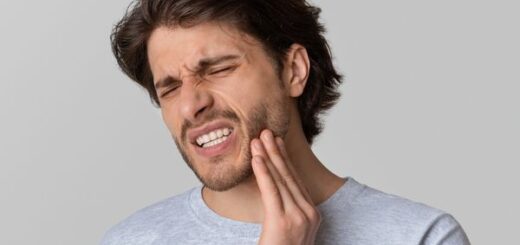What is Nail Biting Disease? How to Stop Nail Biting?
Nail biting disease is a problem that negatively affects people’s daily and social lives. This problem, which usually begins in childhood or adolescence, may continue into adulthood. Nail biting disease may be seen by society as a simple and easily solvable condition. However, most individuals with this complaint try to stop nail biting at least once and encounter failure. This can be a frustrating process for both the person and their relatives. There are many treatment methods that provide solutions for the nail biting habit. Positive results can be achieved thanks to approaches where these methods are used in a planned manner. You can find detailed information about nail biting disease and its treatment methods by following the rest of the article.
What is Nail Biting Disease?
Onychophagia, the name of the nail-biting disease, is defined as inserting one or more fingers into the mouth and gnawing the nails with the help of the teeth. This condition, which usually occurs as a result of triggering factors that begins in childhood, may continue at older ages. In some individuals, it may manifest itself in adulthood. Although nail biting behavior can be seen frequently in society, certain criteria must be met in order to be called onychophagia. These criteria can be defined as frequency, severity and duration. In this case, behaviors that repeat at short intervals and cause serious appearance differences in the nail are considered onychophagia. Additionally, for nail biters, it is also important how long this condition continues. From a medical perspective, this habit is considered a type of impulse control disorder. There are also some scientific studies predicting that nail biting disease may be included in obsessive compulsive disorder.
What are the Harms of Biting Nail?
During nail biting behavior, surrounding tissues are also damaged. For this reason, some undesirable situations may occur. Harmful consequences that may occur as a result of nail biting are as follows:
- Abnormal-looking nails: This condition, which occurs as a result of onychophagia, may disturb the person cosmetically. But it may not be just that. As a result of the nail-biting habit that begins at a young age, school life and relationships with friends may be negatively affected. As for behavior in adulthood, both the work and social lives of individuals can be negatively affected.
- Skin infections: During onychophagia, the nail and surrounding tissues are damaged. As a result, skin integrity may be impaired. Therefore, various fungal or bacterial infections may be encountered. Gnawed nails may be incompatible with the nail bed when they grow back. The protective layer of the skin may be damaged as a result of the nail sinking into the surrounding support tissue. For this reason, infection may occur. Nail fungus, known as onychomycosis, and paronychia, are among the types of infections that can be seen as a result of biting the nail.
- Respiratory diseases and other infections: Bacteria, viruses and fungi found in nail biting are carried into the mouth. As a result, infections that affect the respiratory tract or digestive system may occur. For a healthy life, hand hygiene should be given importance. Onychophagia is one of the factors that cause deterioration in hand hygiene.
- Temporomandibular joint injury: The temporomandibular joint, also known as the jaw joint, works actively during chewing and mouth movements. Pain may occur during nail biting due to overuse of this joint. In severe cases of onychophagia, serious health problems, also called temporomandibular joint dysfunction, may be encountered.
- Tooth damage: Similar to teeth grinding disease, structural problems may occur in nail biting disease. The enamel layer, which forms the outermost layer of the tooth, may be damaged due to the pressure created by the teeth on the nails for a long time and repeatedly. As a result, various dental problems, especially tooth sensitivity, may be encountered.
What are the Causes of Nail Biting?
There are many factors that affect the formation of nail biting disease. By knowing these factors, the reasons behind the nail biting habit can be more easily identified. Knowing the cause makes the treatment process easier. The reasons for biting nails are as follows:
- Way of confronting problems: Some problems experienced in daily life create situations such as disappointment or impatience and stress in individuals. While the disturbing factors related to that problem are resolved in the mind, nail biting behavior may be seen as an external expression. If it is thought that there is such a reason behind biting nails, it is necessary to be aware of the triggering events.
- Feeling of boredom: When nail biting becomes a habit, this behavior can be continued in all boring situations and environments throughout the day. According to studies conducted on this subject, nail biting behavior is more common in individuals with insufficient motor activity during the day. Nail biting habit may occur as a result of routine life and insufficient movement.
- Anxiety: Anxiety disorders, also known as anxiety, may be related to nail biting disease. In addition, individuals who do not have any anxiety problems can be seen biting their nails when faced with situations that worry them during the day. As a result of an increase in the severity or frequency of such events, nail biting disease may occur.
- Attention deficit and hyperactivity disorder: Attention deficit and hyperactivity disorder, which manifests itself with difficulty focusing and impulsive behavior, is a type of mental condition that can cause nail biting disease.
- Depression: This clinical picture, also known as major depressive disorder, refers to long-term and persistent intense sadness accompanied by decreased interest. In addition to psychiatric symptoms, individuals with depression may also experience various physical symptoms. Nail biting habit is one of these physical symptoms.
- Obsessive-compulsive disorder: The set of constantly recurring and disturbing thoughts and repetitive movements performed in response to these is called obsessive-compulsive disorder. Biting your nails may be among these repetitive movements. There are studies observing significant relationships between obsessive compulsive disorder and nail biting habit.
- Other psychiatric syndromes: Separation anxiety disorder is a condition in which the individual feels intense anxiety and stress even at the thought of separation from the person to whom he or she is attached. Similar to other types of anxiety, nail biting disease may occur as a result of separation anxiety. Tourette syndrome, also known as tic disorder, may be the factor behind nail biting.
Nail Biting in Children
There may be many factors that cause nail biting in children. The habit of biting nails may be a child’s way of coping with the problems he encounters in school life and friendships. However, there are studies showing that nail biting, which begins in childhood, has a genetic origin. According to research, the risk of encountering nail biting problems in the future is higher than normal in children whose family members have onychophagia. According to the data disclosed in the studies, there is a similar risk even if parents quit this habit before their children are born. However, genetics is not the only reason behind nail biting. Factors that cause nail biting problems in adults may also cause this behavior in children. This disorder, which occurs in individuals at a young age, may continue until later ages as a result of the continuation of the underlying causes.
Which Vitamin Deficiency Causes Nail Biting?
There is no vitamin deficiency associated with nail biting disease. However, nail structure may deteriorate due to various vitamin deficiencies. A damaged nail structure may have a triggering effect on onychophagia. Vitamins B12, C and D are important for maintaining nail health. In vitamin B12 deficiency, blue nail color or dark spots may be observed. Longitudinal, wavy dark lines and brown spots are other nail symptoms that can be seen in vitamin B12 deficiency. In vitamin C deficiency, nails may grow late or break easily. Peeling nails are a condition that can be seen in vitamin D deficiency. Individuals with nail biting disease are recommended to take the necessary vitamins and minerals during the treatment. You can consult a specialist physician on how to take precautions against deficient vitamin and mineral levels in your body.
How to Quit Nail Biting Habit?
Nail-biting habit is a disorder that seriously disturbs individuals in the future, even if it is done unconsciously at the time. For this reason, many people make attempts to put an end to these habits. These initiatives, which are started without a plan, are often not useful. The answer to the question of how to stop nail biting is to understand the reasons and follow an appropriate program. A certain period of time is required to eliminate habitual nail biting behavior. According to research, it takes at least 18 days to break a habit. This period varies depending on the type and severity of the habit. Therefore, the factors that cause nail biting should be investigated and determined. Then, these factors should be removed whenever possible and efforts should be made to prevent nail biting behavior.
What Should Be Done to Avoid Biting Your Nails?
There are many methods that are useful in preventing nail biting. You can prevent your nail biting habit by trying these methods. Techniques that can be used against nail biting are as follows:
- You can cut your nails short: You may feel more reluctant to bite a nail that is too short for your teeth to grasp.
- Manicure: The money and time you spend on nail care may make you question your idea of ruining your nice-looking nails again. In this way, you can consciously control your nail-biting behavior.
- Discover activities that keep your mouth and hands busy: By chewing gum, you can keep your mouth busy. In a similar way, you can use tools such as stress balls and pens for your hand. In this way, you may not feel the need to bite your nails since both your hands and mouth are active.
- Bad-tasting polishes: There are different nail polishes and nail polishes developed for onychophagia. The main purpose of these materials is to act as a deterrent by covering your nails with a bad taste. You can find bitter-tasting polishes in varieties suitable for women, men and children.
- You can use stickers or tape: You can apply stickers or tape to avoid biting your nails. Similarly, you can avoid biting your nails by using gloves.
- Investigate triggering factors: There may be different emotions and feelings behind your nail-biting habit that disturb you. By increasing your attention to this issue, you can determine what kind of events or thoughts start biting your nails. In this way, you can be sensitive about not biting your nails when you encounter a similar situation. You can eliminate your trigger factors by developing techniques to distract yourself.
How is Nail Biting Treatment?
You may not get a clear result as a result of the methods you apply yourself. At this stage, you need to get support from a specialist physician. If you have one of the following conditions regarding your nail biting habit, you should consult your doctor for a solution:
- Unsuccessful attempts to stop biting nails
- Skin and nail infections
- Nails that are thinner or thicker than normal
- Nail color changes
- Separation of the nail from its bed
- sinkings
- twists
- Bleeding, swelling or pain in the tissue around the nail
- Delays in nail growth
Your physician and specialist psychologist can determine the severity and causes of your nail biting disease and follow a treatment plan. There are different cognitive therapies and drug treatments that can be applied to stop the habit of nail biting. Cognitive behavioral therapies are effective in replacing the actions that disturb you with conscious behaviors. You can benefit from this treatment method with the program prepared specifically for you. Additionally, depending on the cause of onychophagia, you may be asked to use some additional medications. As a result of this entire treatment process, you can observe positive results instead of unsuccessful attempts. In order to obtain a permanent and effective solution, you should consult a specialist doctor throughout your nail biting treatment.










